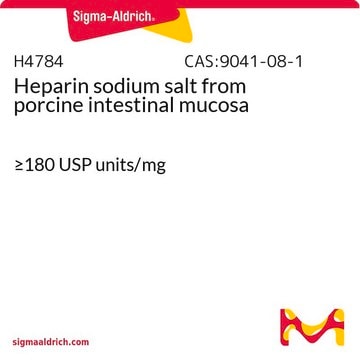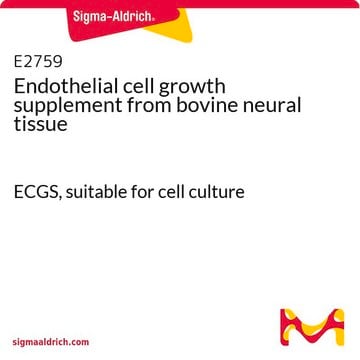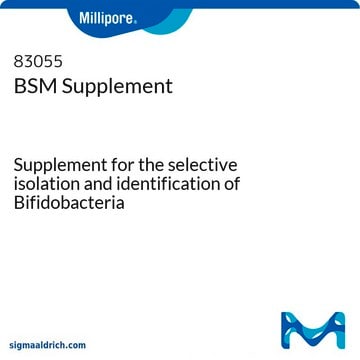A8036
N-Acetylheparin sodium salt
~90%
Iniciar sesiónpara Ver la Fijación de precios por contrato y de la organización
About This Item
Productos recomendados
assay
~90%
form
solid
Application
N-Acetylheparin, derivitized porcine mucosal heparin without anticoagulant properties, may be used to protect cardiac, vascular and neural tissues by inhibiting complement activation and neutrophil infiltration of the damage site.
Preparation Note
Prepared from porcine mucosal heparin by a modification of the method of Nagasawa, K. and Inoue, Y., Methods Carb. Chem., 8, 291 (1980).
Storage Class
11 - Combustible Solids
wgk_germany
WGK 3
flash_point_f
Not applicable
flash_point_c
Not applicable
Certificados de análisis (COA)
Busque Certificados de análisis (COA) introduciendo el número de lote del producto. Los números de lote se encuentran en la etiqueta del producto después de las palabras «Lot» o «Batch»
¿Ya tiene este producto?
Encuentre la documentación para los productos que ha comprado recientemente en la Biblioteca de documentos.
J L Park et al.
Pharmacology, 58(3), 120-131 (1999-02-02)
The ability of the heparin derivative, N-acetylheparin (NHEP) to protect the heart from regional ischemia/reperfusion injury was examined in vivo. NHEP (2 mg/kg i.v.) or vehicle was administered 2 h before occlusion of the left circumflex coronary (LCX) artery. Open-chest
P C Kouretas et al.
Circulation, 99(8), 1062-1068 (1999-03-02)
Coronary endothelial dysfunction after brief ischemia-reperfusion (IR) remains a clinical problem. We investigated the role of heparin and N-acetylheparin, a nonanticoagulant heparin derivative, in modulating coronary endothelial function after IR injury, with an emphasis on defining the role of the
P C Kouretas et al.
Journal of molecular and cellular cardiology, 30(12), 2669-2682 (1999-02-17)
Heparin, which is widely used clinically, has recently been shown to have specific properties affecting the vascular endothelium. We hypothesized that heparin stimulates endothelial nitric oxide synthase (eNOS) activity by a mechanism independent of its anticoagulant properties and dependent on
Y Hua et al.
Journal of neurosurgery, 92(6), 1016-1022 (2000-06-06)
Brain edema formation following intracerebral hemorrhage (ICH) appears to be partly related to erythrocyte lysis and hemoglobin release. Erythrocyte lysis may be mediated by the complement cascade, which then triggers parenchymal injury. In this study the authors examine whether the
Nuestro equipo de científicos tiene experiencia en todas las áreas de investigación: Ciencias de la vida, Ciencia de los materiales, Síntesis química, Cromatografía, Analítica y muchas otras.
Póngase en contacto con el Servicio técnico








